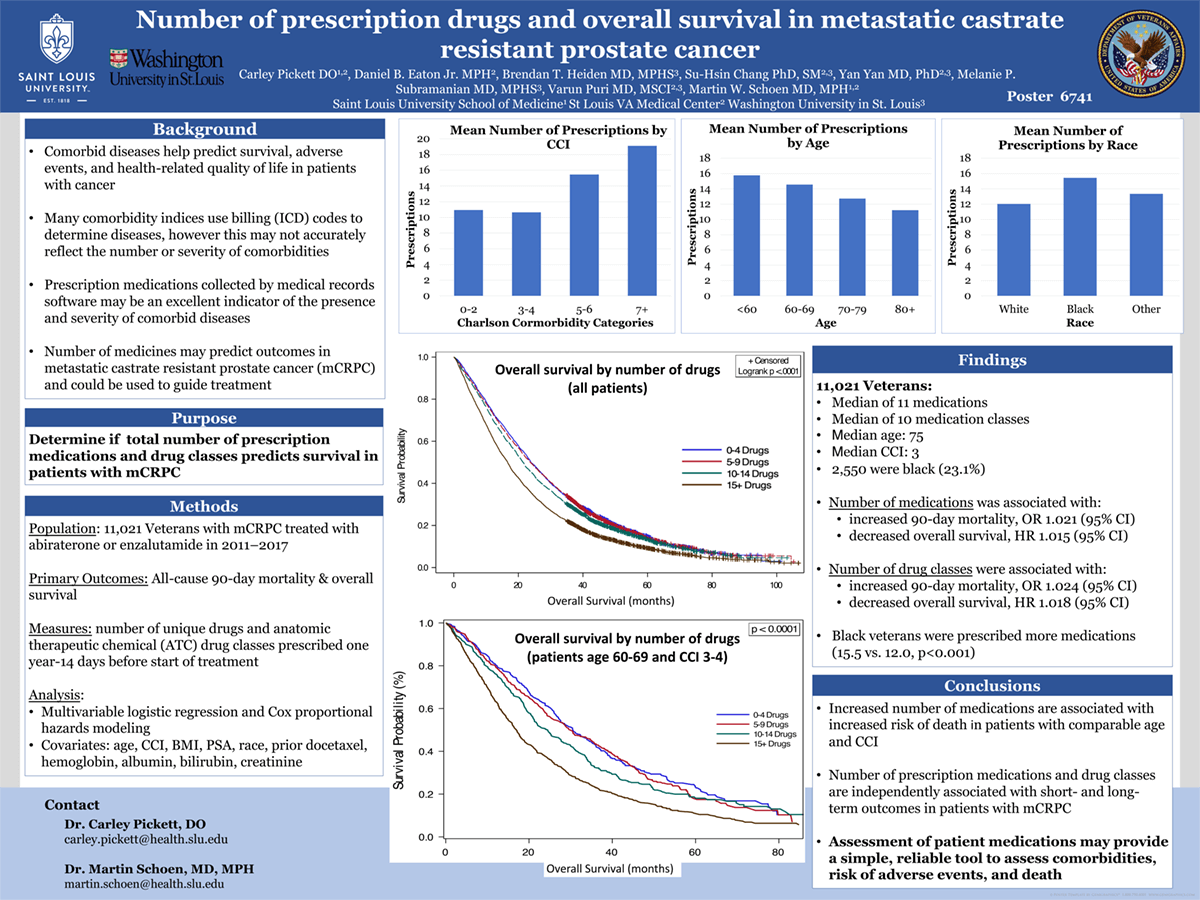
Introduction: Assessment of comorbidities is essential to clinical research and predicts adverse events and death. Prescription medications could be a tool for predicting risk independent of the Charlson Comorbidity Index (CCI). Additionally, clinicians have access to prescription medication lists, facilitating assessment of comorbidities.
Methods: Retrospective study conducted of US Veterans treated for metastatic castrate resistant prostate cancer (mCRPC) May 2011-June 2017. We determined number of unique drugs and drug classes prescribed one year prior to 14 days before treatment. Multivariable logistic regression and Cox proportional hazard modeling was used to assess the association between number of drugs with 90-day mortality and overall survival (OS) while adjusting for age, CCI, body-mass index, prostate specific antigen, race, prior docetaxel, hemoglobin, albumin, bilirubin, and creatinine.
Results: In 11,021 Veterans, a median of 11 (IQR, 6-18) medications and 10 (5-15) medication classes were filled in the year prior to treatment. The median age was 75 years, median CCI was 3, and 2,550 were black (23.1%). Increasing age was associated with increased CCI. Increased age was associated with decreased number of medicines. Black race was associated with increased number of mean medications compared to white race (15.5 vs. 12.0, p<0.001). After adjustment, the number of medications and drug classes were independently associated with increased 90-day mortality with adjusted OR (95% CI) of 1.021 (1.011,1.030) and 1.024 (1.012,1.036) respectively. Number of medications and drug classes were associated with decreased OS with adjusted Hazard Ratio of 1.015 (1.013,1.018) and 1.018 (1.014,1.021) respectively. Within subgroups of patients with comparable CCI, increased number of medications was associated with increased risk of death.
Impact: The number of prescription medications and drug classes are independently associated with short- and long-term outcomes in patients with mCRPC, even after accounting for important covariates including age and CCI. Patient medications may provide a simple, yet reliable tool to assess comorbidities, risk of adverse events, and death.
Organization: Saint Louis University
Schoen MW, Pickett CR, Eaton DB, Heiden BT, Chang SH, Yan Y, Subramanian MP, Puri V